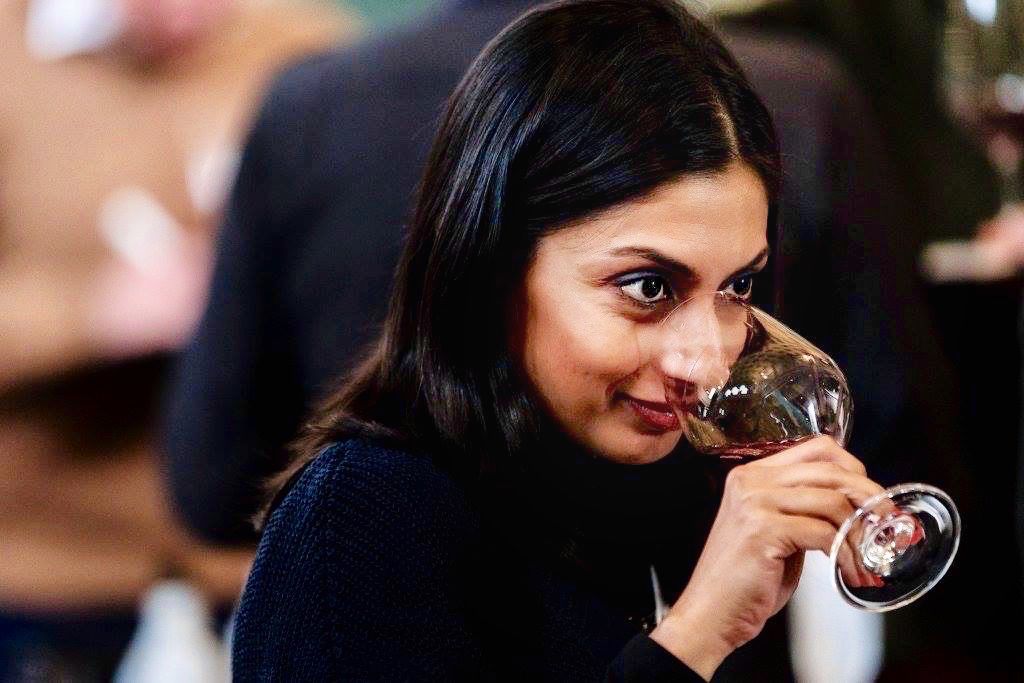Sumita Sarma’s powerful story of what it has been like for her as an “outsider” trying to make her way in the wine industry is a difficult but must read.
As a starting point, it is important for all who are reading to be aware that neither have I grown up in a family that has any history or connection with wines, nor do I hail from an established wine country (things have certainly changed for India in the last 20 years but not while I was growing up). My parents are teetotallers (even today) which means no alcohol has ever been served in my family. More importantly, alcohol historically has been considered a taboo in many sub-sects of the Hindu religion and to work in wines, that too being a woman was completely impossible, even in my wildest dream.
The scientific benefits of resveratrol from grape skins, helping to combat a variety of medical issues, is what actually drew me towards wines. I was well into my thirties when I started studying about wines, so I am no child prodigy in this elite industry. By the time I decided to make a conscious move to make wine my second career, little did I know that many factors were going against me – my age, gender, nationality and background.
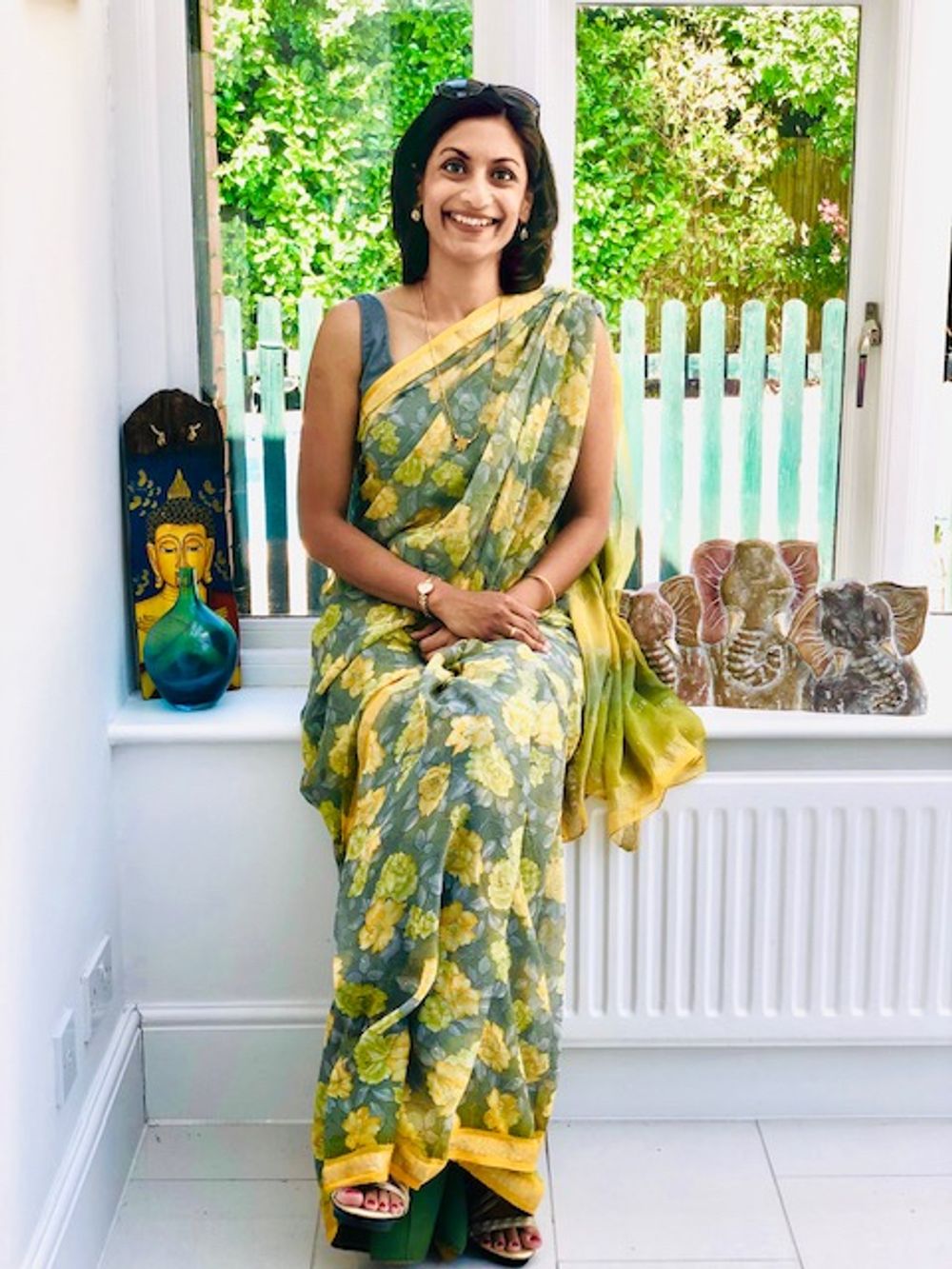
Sumita Sarma has enjoyed a successful career in banking and accountancy but has found the opportunities in the wine industry far harder to come by
Perception vs Reality : History of Diversity
I was very naïve to presume that wine being a developed western phenomenon, I would not face any issues changing careers. After all, I had been a successful banker, a double Masters in Finance and Human Resources, award winning rank holder in Chartered Accountancy (which in India has a pass rate of less that 10% in the old scheme when I took it). These would certainly stand me in good stead and help me carve a solid career in wines.
Sadly, the reality was depressing. A round of at least 50 failed applications to multiple retail and boutique independent merchants, distributors, wine producers and educational organisations opened my eyes to the fact that I was not ‘good enough’.
Who were these jobs going to? What could I change to make it “good enough”? I could not change my identity, I could not change my age or my gender. The only thing I could do was to work harder on my own, keep studying and trying to reach the pinnacle of wine profession. Why? Just to prove my self-worth.
And the proof is upfront. I am currently pursuing the Masters of Wine. Did that come out of a “fun” curiosity to learn more or a promise of better opportunity? In fact, it is the lack of opportunity, the lack of support and closed doors that have pushed me into what I am doing today. And I don’t regret this decision one bit. Because it is only through this journey of studying for the Master of Wine, did I find engaging mentors and empathetic fellow students who were willing to hear my story, show me and share their paths.
But the bigger point is still left unaddressed – what about all the last eight years that I spent in the wine world with self-doubt, lack of clarity and low self-worth? Am I speaking with the right accent, do I fit in? Fitting in that tiny little box that is filled with similar people of the same profile, who look like each other, who act like each other. How comfortable was that for them? How uncomfortable and lonely was that for me and many like me?
Reflecting on diversity – A case for the wine industry

Kirsten MacLeod has shared her experience in diversity and inclusion working in other sectors
Diversity consultant, Kirsten MacLeod put up a strong case in a recent Circle of Wine Writers seminar on diversity and inclusion on how we can work towards resolving diversity issues and promote inclusion, which I will lay out later.
On this point, I will not do justice if I don’t thank Wink Lorch for putting me on the spotlight in the seminar (and I thank her whole heartedly for doing so) with a question, on how I felt when I visited wineries in Europe. It was the first time in my eight years in the industry that someone had asked me this personal question upfront.
My throat ran dry for a few seconds as I struggled to find words. Words that could best answer this question diplomatically and tactfully, but thankfully, English is not my mother tongue and so my words were simple and straight from my heart – that I felt lonely and excluded. And I explained how these feelings spun like a whirlpool, into a vicious web of low self-worth.
My reflection, as an outsider who has struggled hard to find a suitable role in this industry, having no connections or history of working in wines, is that it is too white, too male oriented and males who look, act and behave exactly like one another. Where do the rest, a huge chunk of us fit in? We are like little flies trying to find an anchor to rest. And if we do find a spot, we are shooed off.
The fight for diversity and inclusion is not new for people of colour. For them, it is ingrained, systemic and so deeply scarred in the blood and brain, trickled down through generations of subjugation. There is no way of isolating it. The scar exhibits as pure pain inside their living souls, the feeling of helplessness and emptiness surrounding it.
The tipping point
Over the years, diversity has evolved as it should, embracing multiple facets under its umbrella, including but not limited to people of colour, background, gender, culture, religion, disabilities and sexual orientations. Surely not a new concept, while the world was waking up to it slowly, it was the shocking death of George Floyd in 2020 that turned out to be the tipping point for any action to actually take place globally.
For the wine trade, that harsh moment of awakening was the sexual harassment scandal at the Court of Master Sommeliers in the United States.
The straw that broke the camel’s back in the UK was the fall out from the separate and very different incident when the private writings made by ‘Wine Bitch’ about members of the UK wine trade were made public.
There is a stark fragility and disjointed non-diverse framework in the wine industry; a lack of diverse voices.
Helping to change
There are in my view two types of people who we need to help change the way they behave. The ones who do it intentionally and the ones who claim ignorance and say they are not aware they are causing offence.
Neither of these two types can extricate themselves from the devastating effect that such discrimination can cause to their victims; eroding their self-esteem and mental health. This should never happen.
I am coming out today (better late than never) to express my disillusionment at the lack of support or recognition, this industry offers to wine entrants or for that matter, to those who have been long standing members. It’s a dog’s life here and survival is as uneventful as departure. Over the years, disappointingly, the sector has turned more inward than outward; more backward than forward, as events unfold in front of us. What happened a few months ago felt like we live in ancient history.
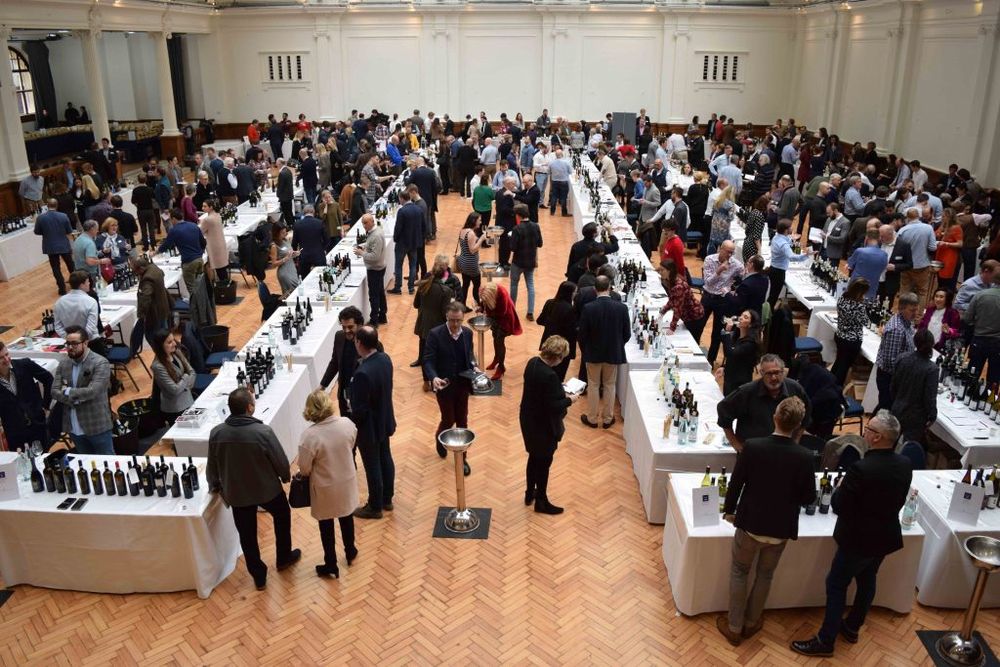
To an outsider, particularly from ethnic and BAME backgrounds, the wine trade is overwhelmingly white and very much male dominated industry to find your way in
On the face of it, everyone looks happy but a silent battle persists, spreading its claws, more than ever before. Leaving mental scars that may heal in time but will not and should not be forgotten. The past will haunt us till a secure future is established. Covid-19 has brought out the worst in us but what we can learn is, how to channel it, to gain the better for the sake of humanity. Not everyone is bad. Not everyone wants to be bad either. We can and must make diversity work
Diversity – the present
Earlier this month, The Drinks Trust met up with a number of members of the wine trade to discuss the issue. Lucy Marcuson, is heading up the Diversity and Inclusion Project, under chief executive, Ross Carter’s leadership.
Their first step is indeed the most difficult step – building an active conversation, which will form a basis for developing an industry wide Charter or Code for Diversity and Inclusion. An ambitious project on their shoulders, I give them full marks to them for setting the wheels in motion.
While this process takes shape, how and what can each one of us do in small and big ways to support each other, is an important question to be looked at. A shake up of the framework is what the industry needs.
Every individual, as components of this system will need to come together. As Kirsten McLeod discussed recently at her Circle of Wine seminar, forming allies and collaboration are great ways to open up dialogue and help build a formidable framework for diversity and inclusion. The industry is too disparate and we need a common thread to link us up.

The Drinks Trust is coordinating an industry wide approach on how best to tackle and promote diversity and inclusion in the drinks industry
Need for allies
The power of friendships, allies and collaborations is the thread that can see us through adverse times of lockdown and the low morale that we face today. Where the Drinks Trust Charter and Code will add value, is in outlining the formal boundaries, rules and by laws that can secure individuals rights to be rightly treated fairly, be recognised and awarded based on their abilities rather than their differences.
To make the framework work, visibility of diversity and inclusion must come through individual actions and each of our contributions through small or big ways. The Gerrard Basset diversity scholarship, WSET scholarships and Be Inclusive mentorships are major efforts in this direction but through simple acts of kindness, each of us can make a huge difference.
Individuals of different faiths, abilities, orientations must be allowed to express themselves, reach out and connect with others, for this can create impactful collaborations of the highest order and show that our industry extends beyond colour, faith, gender and religion. Works of Wine Unify should not be underestimated as this is exactly what their aim is.
We need both internal and external forces to work towards creating an effective diversity and inclusion atmosphere.
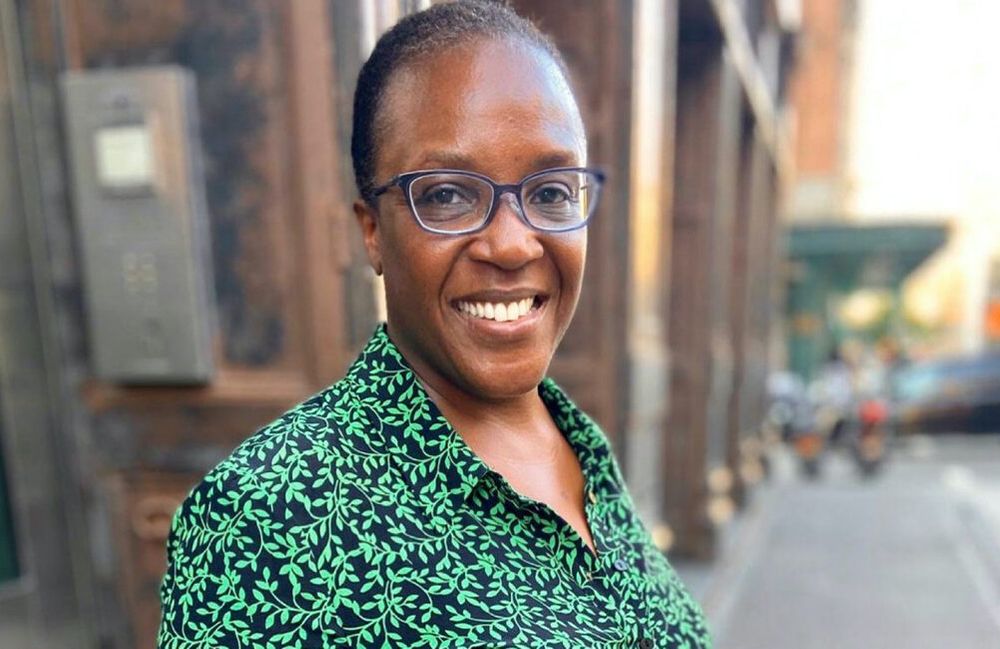
The work that Alicia Towns Franken and the Wine Unify team is doing is helping to provide a platform and a network to promote diversity in wine
How to build connections and collaborations
The power of the pen, the power of community and one-on-one support should not be underestimated in the era of social media. Jancis Robinson MW and Mags Janjo’s BAME Wine Professionals, Suzi O’Neill’s initiated Vinclusive community, their regular off-line meet ups and discussions and Lorraine Copse’s mentorships and focus groups on beinclusivehospitality are some of the pertinent works taken up in this direction.
All with the singular aim of bringing people from diverse backgrounds together, creating trust, respect and elevating self-worth. Every individual brings with him/her/them, a unique set of attributes and strengths.
As quoted by Ronald Reagan: “By working together, pooling our resources and building on our strengths, we can accomplish great things”.
These meaningful connections give rise to ideas and innovations, that create value addition for the entire industry as a whole. Diversity and inclusion as an invisible strength can be a huge asset for any organisation.
Mental strength is the need of the hour and Covid-19 has taught us more about resilience than any other experience of this century. Mentorship opportunities should not be offered only for new entrants but also for established members who can and must ask for help and support, should they need it. There is no shame in asking for support. This is one moment where we set aside differences, ego and get together to gain from each other.
Mentors have a lot to take away from mentees too. They gain equally through the art of listening. Listening more, showing compassion and working together is the much needed change that our industry needs.
Diversity as an opportunity for the future
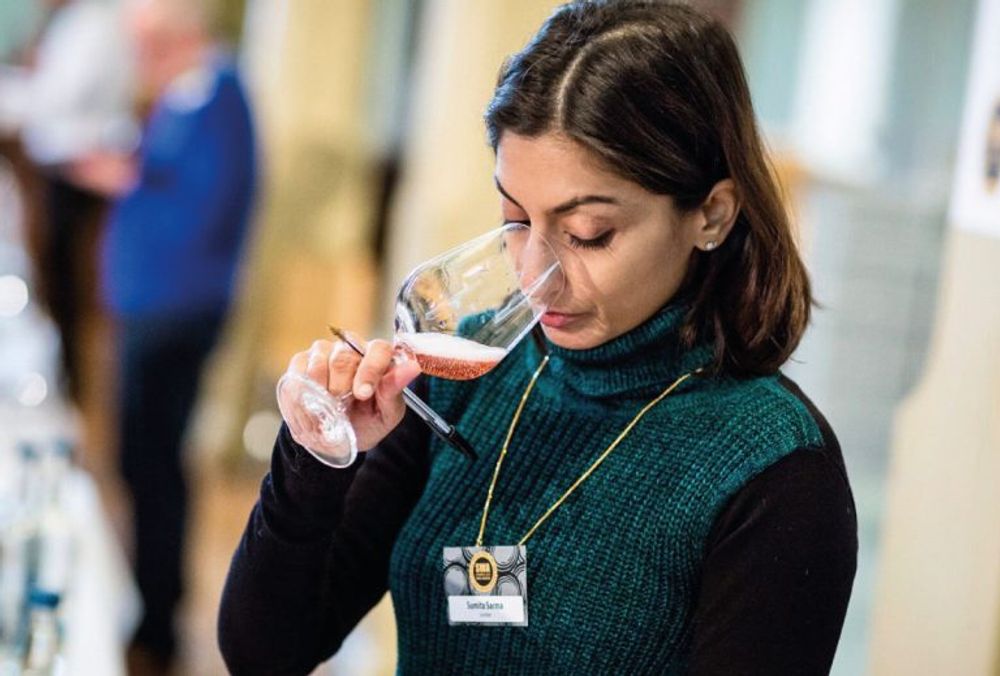
Sumita Sarma says it is up to everyone in the wine industry to play their part in promoting diversity and inclusion and being more welcoming to everyone in the sector
Diversity is now a global phenomenon, whether we like it or not. It is firmly part of the identity of the upcoming generation, many of whom are a mixed race. Progression in social attitudes and work ethics are natural outcomes and so a change in the mindset is inevitable to keep up with changing demographic values.
The census results for the category of mixed-ethnic group has nearly doubled from 1.3% 2001 to 2.3% in 2011. This figure is most likely an undercount as suggested through readings from LSE and Essex University. The upcoming statistics of 2021-22 are expected to confirm the steep growth in numbers of children from mixed marriages. Generation Z and below are expected to be deeply vocal about normalising differences. Hence the future of diversity lies in appreciating and using it as an opportunity to consolidate the industry power.
There is no going back on this. We have to take the bull by the horns, dig deeper inside ourselves and consciously change the way we act and behave.
Diversity and inclusion does not mean just accepting it quietly today and forgetting about it tomorrow. It is about recognising, respecting, celebrating and channelling the strength of every individual in the industry.
Just like the solera needs constant replenishment, so does the industry. Allow people to blend in and contribute. Individual self-worth gives rise to organisational strength which in turn will make the industry strong enough to face the upcoming challenging era.
- Sumita Sarma is a wine communications consultant and founder of Sumilier® Wine Services (www.sumilier.com). She is an MW student, a qualified Chartered Account, also has a Masters in Human Resources Management having worked in recruitment for investment banks and prior to that, an experienced Corporate and Institutional Banker. You can reach her on twitter @sumi_sumilier and on Instagram @sumiliertasting
